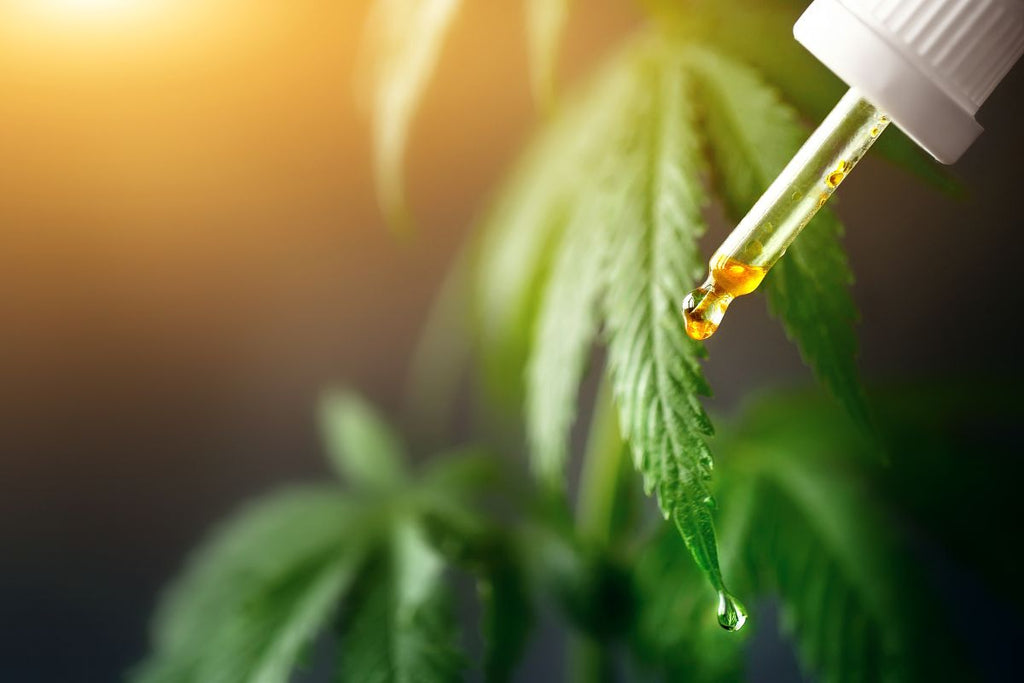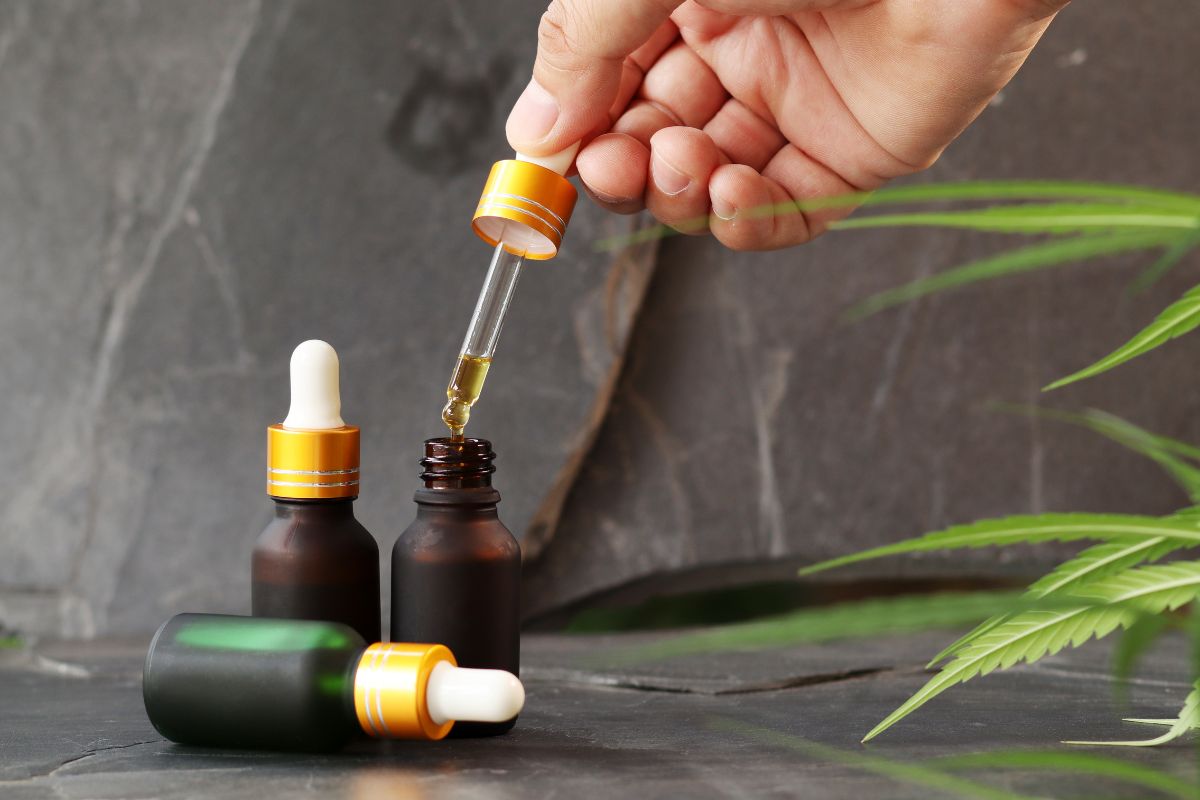
What Is the Difference Between Hemp Oil and CBD Oil?
Hemp oil and CBD oil are both derived from the cannabis plant, but they are not the same thing. Hemp oil is made from the seeds of the cannabis plant, while CBD oil is made from the flowers, leaves, stems, and stalks of the plant.
Hemp oil does not contain CBD, while CBD oil contains varying amounts of CBD. CBD is a non-psychoactive compound that has been shown to have a number of health benefits, including reducing anxiety, pain, and inflammation.
Here is a table that summarizes the key differences between hemp oil and CBD oil:
| Characteristic | Hemp Oil | CBD Oil |
|---|---|---|
| Origin | Seeds of the hemp plant | Flowers, stalks, and stems of the hemp plant |
| THC content | 0% | <0.3% |
| Legal status | Legal in most countries | Legal in most countries |
| Benefits | Moisturizing, anti-inflammatory | Reduces anxiety, pain, inflammation, seizures, and more |
| Side effects | Mild, such as dry mouth and drowsiness | Rare, such as nausea and diarrhea |
If you are interested in trying CBD oil for its potential health benefits, it is important to choose a product that is made from high-quality hemp and that has been tested for purity and potency. You should also start with a low dose and gradually increase it as needed. CBD oil is generally well-tolerated, but it can cause some side effects, such as drowsiness, dry mouth, and nausea. If you experience any side effects, talk to your doctor.
 Hemp oil and CBD oil are two popular products that are derived from the cannabis plant. However, there are some key differences between the two.
Hemp oil and CBD oil are two popular products that are derived from the cannabis plant. However, there are some key differences between the two.
- Hemp oil is made from the seeds of the cannabis plant. It does not contain any THC, the psychoactive compound that produces a "high". Hemp oil is often used for its nutritional value and its potential health benefits, such as reducing inflammation and anxiety.
- CBD oil is made from the flowers, leaves, and stems of the cannabis plant. It can contain THC, but it is often extracted in a way that removes most or all of the THC. CBD oil is used for a variety of health conditions, including chronic pain, anxiety, and seizures.
Q: What is the primary difference between hemp oil and CBD oil?
Hemp oil is extracted from the seeds of the hemp plant, while CBD oil is derived from the flowers, leaves, and stalks. The key distinction lies in their cannabinoid content, with CBD oil containing higher levels of cannabidiol (CBD), renowned for its potential therapeutic effects.
Q: Can hemp oil and CBD oil be used interchangeably?
No, hemp oil and CBD oil have different applications. Hemp oil is commonly used as a culinary ingredient and for its potential skincare benefits, while CBD oil is primarily sought after for its reported analgesic, anti-inflammatory, and calming properties.
Q: Are there any similarities between hemp oil and CBD oil?
Both hemp oil and CBD oil are derived from the same plant species, Cannabis sativa, and share certain nutritional properties. However, their composition, extraction methods, and usage differ significantly.
Q: Does hemp oil or CBD oil contain THC?
Hemp oil generally contains negligible amounts of THC (tetrahydrocannabinol), the psychoactive compound found in cannabis. On the other hand, CBD oil may contain trace amounts of THC, depending on the extraction process and regulatory guidelines.
Q: Are there specific benefits associated with hemp oil and CBD oil?
Hemp oil is rich in essential fatty acids, vitamins, and minerals, making it potentially beneficial for skin health, digestion, and hair care. CBD oil, due to its higher CBD concentration, is believed to offer potential relief from pain, anxiety, inflammation, and certain neurological conditions.
Q: How can one ensure the quality and authenticity of hemp oil and CBD oil products?
To ensure quality, it is important to purchase hemp oil and CBD oil products from reputable sources that provide third-party lab testing results, indicate the origin of their ingredients, and comply with regulatory standards.

Q: Does Hemp Oil Or Cbd Oil Interact With Other Medications?
It is essential to understand the potential effects that both hemp oil and CBD oil could have on any existing drugs or treatments. In order to answer this question, a research analyst must consider how hemp-oil-medications and cbd-oil-medications may interact with each other in terms of drug interactions and side effects.
There are several factors to consider when evaluating whether hemp oil or CBD oil interacts with medications:
Hemp Oil Interactions:
- The active components found within hemp seed oil can potentially interfere with certain types of medications such as blood thinners and anticoagulants. Additionally, hempseed oil may also increase levels of liver enzymes which could affect the metabolism of some drugs.
- Studies suggest that taking large doses of hempseed oil can reduce the effectiveness of certain prescription drugs including:
- cyclosporine A – used for suppressing immune responses in organ transplantation patients;
- warfarin (Coumadin) - used for preventing blood clots;
- antihistamines - used for treating allergies;
- amphetamines - used for attention deficit disorder (ADHD);
- sulfonylureas - used for diabetes treatment;
- penicillin antibiotics –used for bacterial infections;
- barbiturates – used as sedatives;
- tricyclic antidepressants –used for depression management.
CBD Oil Interactions:
- Cannabidiol has been shown to inhibit cytochrome P450 isoenzymes CYP2D6, CYP2C19, CYP3A4, leading to possibly reduced drug clearance times by decreasing their metabolism rate. This means that users should be cautious about combining cannabis products with strong inhibitors or substrates of those same enzymes while being monitored closely by a healthcare professional.
- Research suggests that cannabidiol may decrease the speed at which body metabolizes certain compounds like THC in marijuana plants or opioids like codeine and oxycodone, resulting in higher concentrations in plasma over time and increasing chances of toxic reactions from drug interactions.
Overall, it is essential to consult medical professionals before using either type of product if you are currently taking prescribed medication or taking part in any kind of medical treatment plan. By understanding how hemp-oil-drugs and cbd-oil-drugs interact with one another through various pathways, researchers can make more informed decisions regarding their safety alongside other medications.
Q: Can Hemp Oil Or Cbd Oil Be Used For Children?
The usage of hemp oil and CBD oil for children is an increasingly popular topic in the health and wellness industry. As parents become more conscious about their child’s wellbeing, they are turning to natural remedies such as hemp or CBD oils to help with certain ailments. Both hemp oil and CBD oil contain beneficial compounds that may provide potential therapeutic benefits for children, including relief from anxiety and inflammation.
It is important to note that while both hemp oil and CBD oil have been studied extensively by researchers, there are still some uncertainties around the long-term effects of these products on children.
Additionally, due to different regulations regarding cannabis use in various countries, it can be difficult to determine whether a particular product containing cannabinoids can be used safely on a minor.
Therefore, if considering using either hemp or CBD oil on your child, it is recommended you speak with a healthcare professional before doing so. Furthermore, research into the effectiveness of these treatments should also be conducted before administering them to ensure safety and efficacy.

Q: Is Hemp Oil Or Cbd Oil Legal In All Countries?
It is important to be aware of the legal status of hemp oil and CBD oil in different countries around the world. The current H2 deals with whether or not these products are legal in all countries.
To explore this topic further, it is useful to look at the global laws related to hemp oil and CBD oil:
Hemp Oil Legality:
- Europe – Since 2003, hemp has been legally cultivated in many European countries such as Italy, France, Spain and Germany. In 2014, the cultivation of industrial hemp was legalized across the EU for research purposes.
- United States – Under federal law, hemp can only be grown by licensed farmers who take part in a state pilot program. Cultivation of hemp must comply with regulations set out by individual states.
- Canada – Industrial production of cannabis sativa containing less than 0.3% THC (tetrahydrocannabinol) became federally legal in 2018 under Canadian Cannabis Act regulations.
CBD Oil Legality:
- Europe – Regulations vary from country to country within Europe but most nations have adopted strict guidelines regarding its use and sale. It is generally accepted that full spectrum CBD oils containing up to 0.2% THC are allowed when they come from approved sources such as medical marijuana dispensaries or manufacturers authorized by national governments.
- United States – Although there are no federal restrictions on the sale and possession of cannabidiol (CBD), each state may determine their own regulation which could limit what types are available for purchase without a prescription or special permit in some cases.
- Canada – All forms of cannabis including derivatives like CBD have been illegal since 1923 except those prescribed by healthcare practitioners through Health Canada’s Access To Cannabis For Medical Purposes Regulations (ACMPR). However, following recent changes made under Bill C45 passed into law on October 17th 2018, recreational consumption & retail sales were officially made legal across Canada starting October 17th 2019.
Overall, it appears that while there are variations between countries' laws concerning both hemp oil and cbd oil, most jurisdictions around the world recognize certain acceptable standards for their use and sale provided they contain low levels of tetrahydrocannabinol (THC). This allows consumers access to appropriate products depending on their geographic location and local legislation governing them. As more studies continue to emerge demonstrating potential health benefits associated with various cannabinoids present in these oils, one can expect greater understanding among policymakers worldwide leading towards an increase in availability where necessary and beneficial for public health initiatives going forward.
Q: Is Hemp Oil Or Cbd Oil More Effective For Certain Conditions?
Hemp oil and CBD oil have been the subject of much discussion in recent years. While both oils are derived from hemp plants, there are differences between them that make it important to understand which one is more effective for certain conditions. To determine this, research has been conducted into the effects of each on various ailments and symptoms.
In terms of effectiveness, studies suggest that hemp oil may be useful in treating inflammation and pain due to its high levels of omega-3 fatty acids. Additionally, some evidence suggests that cannabinoids found in hemp oil can help with anxiety and depression. On the other hand, CBD oil appears to be particularly beneficial for people suffering from seizures or chronic pain due to its anti-inflammatory qualities. It also might offer relief from insomnia and anxiety as well as helping reduce stress levels.
Overall, while both hemp oil and CBD oil possess potential benefits for a variety of conditions, further scientific studies will need to be done in order to definitively assess which product provides greater benefit for specific ailments. Until then, it is important for individuals considering using either option to speak with their healthcare provider about their individual needs so they can determine which type would suit them best based on their health goals.